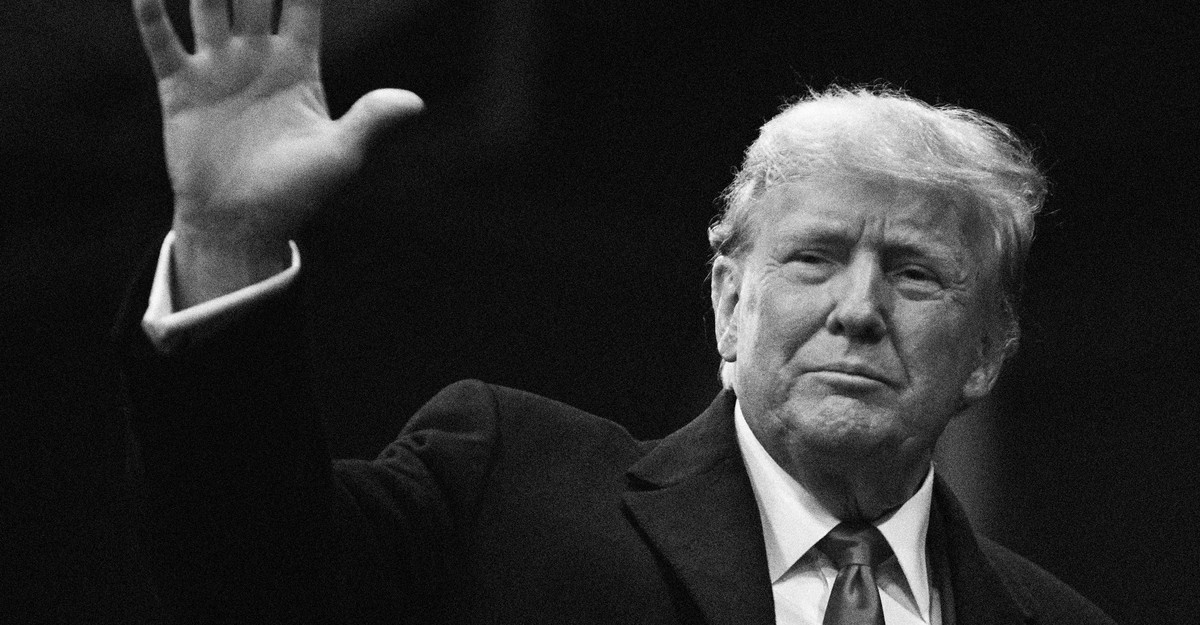Donald Trump’s victory in the Iowa caucus was as dominant as expected, underscoring the exceedingly narrow path available to any of the Republican forces hoping to prevent his third consecutive nomination. And yet, for all Trump’s strength within the party, the results also hinted at some of the risks the GOP will face if it nominates him again.
Based on Trump’s overwhelming lead in the poll conducted of voters on their way into the voting, the cable networks called the contest for Trump before the actual caucus was even completed. It was a fittingly anticlimactic conclusion to a caucus contest whose result all year has never seemed in doubt. In part, that may have been because none of Trump’s rivals offered Iowa voters a fully articulated case against him until Florida Governor Ron DeSantis unleashed more pointed arguments against the front-runner in the final days.
…
Trump’s relative weakness among college-educated voters in the 2016 GOP primary presaged the alienation from him in white-collar suburbs that grew during his presidency. Though Biden’s approval among those voters has declined since 2021, Trump’s modest showing even among the college-educated voters willing to turn out for a GOP caucus likely shows that resistance to him also remains substantial. When the results are tallied, Trump might win all 99 counties in Iowa, an incredible achievement if he manages it. But Trump drew well under his statewide percentage in Polk County, the state’s most populous; in fast-growing Dallas County; and in Story and Johnson, the counties centered on Iowa State University and the University of Iowa. (Johnson is the one county where Trump trails as of now.) Those are all the sorts of places that have moved away from the GOP in the Trump years.
Also noteworthy was voters’ response to an entrance-poll question about whether they would still consider Trump fit for the presidency if he was convicted of a crime. Nearly two-thirds said yes, which speaks to his strength within the Republican Party. But about three in 10 said no, which speaks to possible problems in a general election. That result was consistent with the findings in a wide array of polls that somewhere between one-fifth and one-third of GOP partisans believe that Trump’s actions after the 2020 election were a threat to democracy or illegal. How many of those Republican-leaning voters would ultimately support him will be crucial to his viability if he wins the nomination. On that front, it may be worth filing away that more than four in 10 college graduates who participated in the caucus said they would not view Trump as fit for the presidency if he’s convicted of a crime, the entrance poll found.
Those are problems Trump will need to confront on another day, if he wins the nomination. For now, he has delivered an imposing show of strength within a party that he has reshaped in his belligerent, conspiratorial image. The winter gloom in Iowa may not be any bleaker than the spirits tonight of the dwindling band of those in the GOP hoping to loosen Trump’s iron grip on the party.



No, you also have to court a lot of fringe nutters…
Racist, anti-semites, conspiracy nuts, gun nuts, putin’s wallet, homophobes, disillusioned young men….
Trump’s greatest accomplishment is grabbing a ton of random isolated groups and finding a way to thread the needle with all of them.
A coalition of yuck
Basket of deplorables
While I don’t disagree, I don’t think most of them are beyond reason….
But their needs are small enough and poorly communicated enough that the mainstream ignores them. It’s a tragedy of the commons.
For example, the incels mostly want love and acceptance, and they confuse that for entitlement to sex for reasons I won’t get into here. Dealing with that is hard and requires a lot of community effort that is hard to justify on a spreadsheet. Racist folk often are disadvantaged in some way and then decide that it’s the fault of “x people”. What they actually need is to feel like they can contribute to society and have value unto themselves just as they are. Homophobes are often gay folk in the closet because of internal issues from childhood etc… they need to spend some time accepting themselves.
None of these problems encompass everyone in “group x” But represent a portion of them. None of these issues have value in fixing on their own when we can be much more cost effective by ignoring them. They just don’t budget nicely.
Everyone is the hero of their own story. The greatest villain in your life thinks they’re the hero in their own life. It’s really hard to see in your own life where you’re the villain.
So I agree with you 100%, I just have compassion for their struggles.